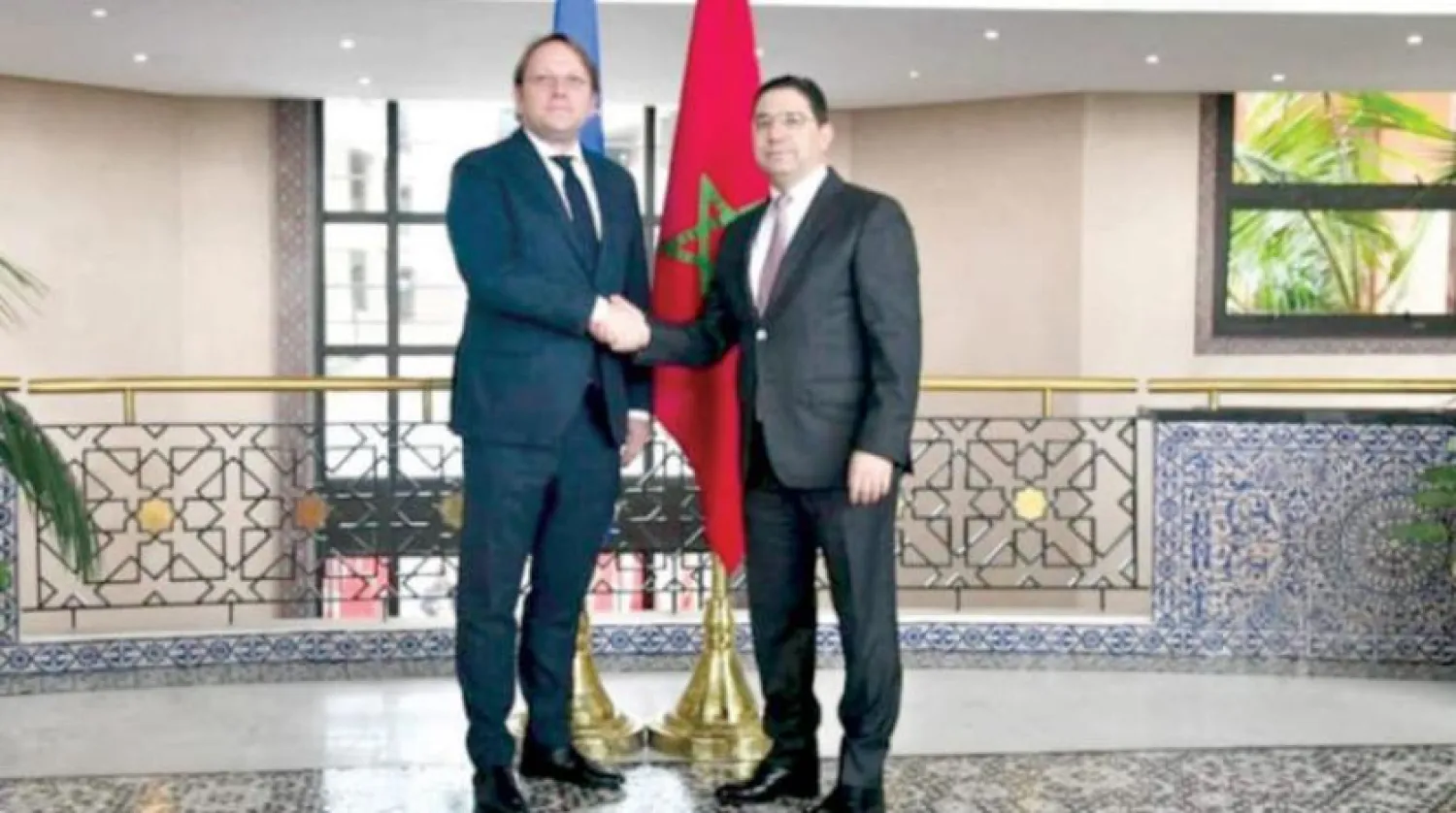Moroccan Foreign Affairs Minister Nasser Bourita said that Rabat, the European Commission, and Israel are preparing a document that they will sign to consolidate the tripartite cooperation and the regional dimension of their relations.
Morocco and the European Union seek to develop security cooperation in migration as well as engage in dialogue on mutual matters, Bourita said as he received the European Commissioner for Neighborhood and Enlargement, Oliver Varhelyi.
The Moroccan FM added that the reforms carried out by the Kingdom helped Morocco exit the gray list of the Financial Action Task Force (FATF).
For his part, Varhelyi said that the EU wishes to contribute to Morocco-Israel cooperation to tackle the main challenges.
He further commended Morocco for being the first country to sign the Abraham Accords.
Morocco and the EU signed Thursday in Rabat, five cooperation programs worth 5.5 billion dirhams (nearly €500 million) to support the Kingdom's major reform projects.
The programs aim to back social protection, green transition, public administration reform, migration management, and financial inclusion.
The "KARAMA" program, with a budget of €130 million, is the second phase of the program to support social protection in Morocco funded by the EU.
Its main goal is to support the reform of the country's social protection system, by improving the quality and efficiency of basic social services and establishing a universal social protection system.
It will support specific measures to ensure equitable access to universal health coverage, family allowances, unemployment insurance, and pensions for the Moroccan population, and will strengthen social assistance and the rights of vulnerable people, including migrants, by providing them with appropriate care and protection.
As for the "AL ARD AL KHADRAA - GREEN LAND" program, which is part of the EU-Morocco Green Partnership, it is financed by €115 million and aims to support the green, inclusive, and innovative aspects of "Generation Green" and "Forests of Morocco".
The main goal is to improve the environmental and economic sustainability of agricultural and forestry activities while promoting the rural populations’ social and economic inclusion.
Similarly, the Public Administration Reform Support Program, financed to the tune of €50 million, aims to improve citizens' access to public services, organize government services more efficiently, and promote the dematerialization of administrative procedures.
This program aims to simplify and digitize administrative procedures for citizens and businesses, as well as to improve the transparency and quality of public services, and will help decentralize administrative services to bring them closer to citizens.
Speaking on this occasion, the Minister Delegate to the Minister of Economy and Finance, in charge of the Budget, Fouzi Lekjaa stressed that the signing of these agreements represents a major step in the economic, social, and environmental development of the Kingdom.
He also commended the EU's commitment to supporting the efforts of Morocco in its quest for sustainable and inclusive development, recalling that these projects reflect the quality and density of cooperation ties between the Kingdom and the EU, as well as the importance of community support for the country’s development efforts.
For his part, Varhelyi said that Morocco is and will remain a key partner for the EU.
He noted that in addition to these five programs, there is an ambitious program in support of Morocco's national strategy for migration and mobility.









